Nutrition & Diet Posts on Crowch
Breast cancer is not a death sentence if detected early. Every October, the world unites under the pink ribbon — a symbol of hope, awareness, and determination — to remind people about the importance of monitoring breast health and supporting those affected by the disease.
While breast cancer is far more common among women, men can also develop it, and their cases are often diagnosed at a later stage because awareness is lower. That is why education, vigilance, and access to screening are vital for everyone, regardless of gender.
The Importance of Early Detection
Breast cancer often begins silently, without pain or visible symptoms. By the time it is noticeable, it may already be in an advanced stage. However, modern medical tools make early detection possible. Monthly self-examinations help individuals become familiar with their own bodies and notice changes such as lumps, skin dimpling, or unusual discharge. Medical checkups — including mammography and ultrasound — can reveal issues long before they become serious.
Health experts recommend:
- Self-examination every month, ideally a few days after your menstrual cycle ends.
- Annual clinical exams by a healthcare provider.
- Regular mammograms for women over 40, or earlier if there is a family history or genetic risk factors.
Global Action and Solidarity
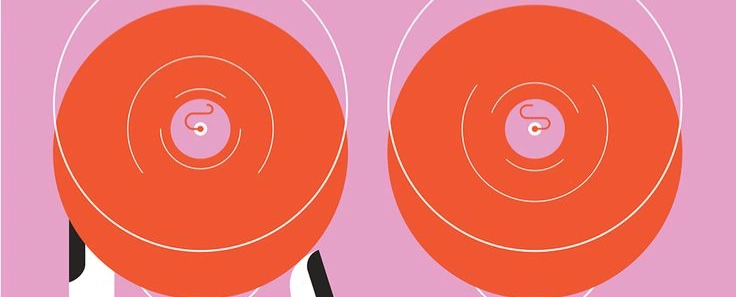
Breast Cancer Awareness Month is marked by a wave of initiatives worldwide. Cities light up in pink, charity runs draw thousands of participants, and public events provide free medical screenings and educational sessions. Social media campaigns share survivor stories, tips on early detection, and fundraising opportunities.
The purpose of these events is twofold — to raise money for research and patient support, and to create a community of solidarity. Listening to survivors share their journeys — from the fear of diagnosis to the relief of remission — inspires others to take preventive action and offers hope to those currently in treatment.
How You Can Help

Even small actions can make a big difference:
- Educate yourself and others about breast cancer symptoms and prevention.
- Support charities that fund research or assist patients financially and emotionally.
- Encourage loved ones to get screened, especially if they are at higher risk.
- Share accurate information on social media to combat myths and misinformation.
A Call to Action
This October, take a step for your health — whether that means booking your mammogram, learning self-examination techniques, or starting a conversation with friends and family. Your voice and your actions matter.
Breast cancer is a challenge, but it is a challenge we can meet with awareness, science, and solidarity. Together, we can save lives, offer hope, and work toward a future where fewer families are affected by this disease.
✈️ Don't Let Your Stomach Ruin Your Trip
Let’s be honest — nothing spoils a holiday faster than a sudden stomach issue. And it happens more often than you think.
It's not the delayed flight or the forgotten charger that derails your mood — it's your gut reacting badly to unfamiliar foods, changes in schedule, or even new microbes in local water.
Luckily, most of this can be avoided with just a little planning. Here are three expert-backed strategies to protect your digestion while you travel.

🧪 1. Start Building Your Gut Defense Before You Go
Your preparation for a smooth trip should begin at least a week before departure. Why? Because your gut needs time to build resilience.
Start taking a probiotic + prebiotic blend daily. This helps:
- Strengthen your gut microbiome
- Improve tolerance to unfamiliar foods
- Reduce the risk of bloating, gas, diarrhea, or constipation
A good supplement should contain:
- Lactobacillus and Bifidobacterium strains – beneficial bacteria that restore balance to your digestive flora
- Fructooligosaccharides (FOS) – prebiotic fibers that feed the good bacteria and promote regularity
This combo not only boosts digestive comfort but also enhances immune function, giving you double protection against travel-related stressors.
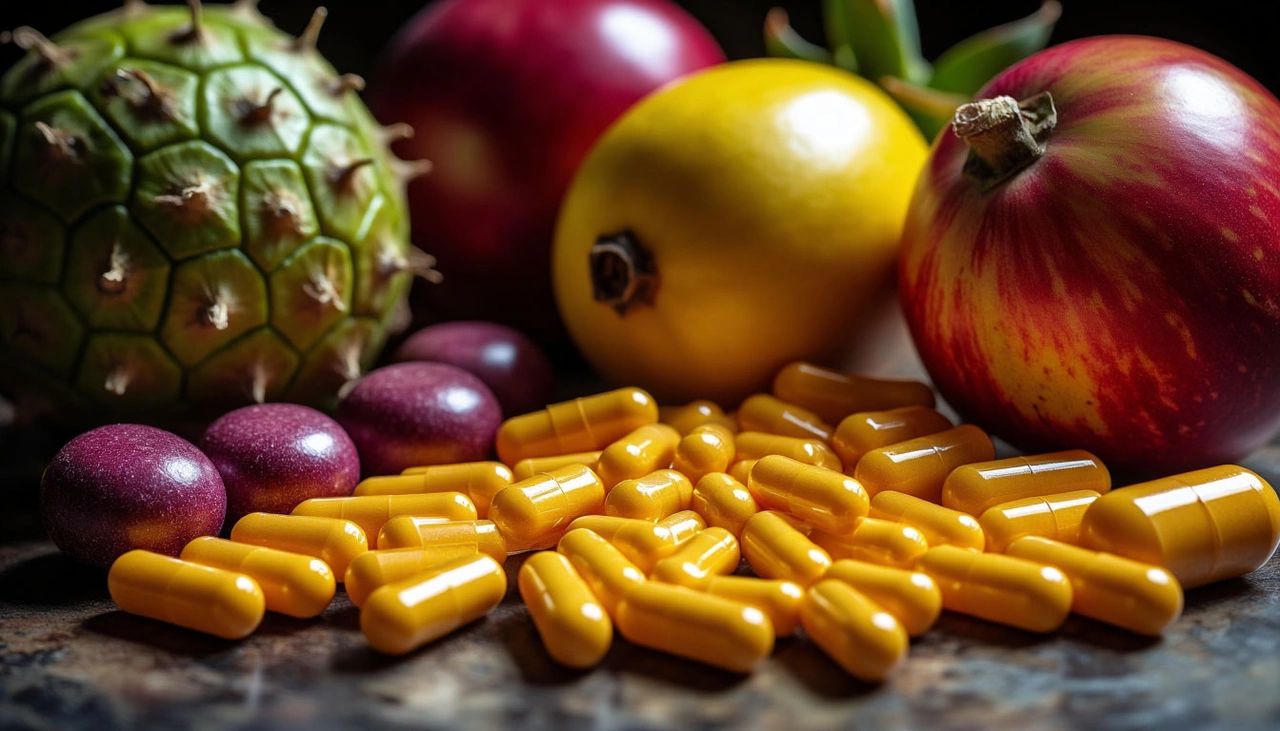
🍽️ 2. Be Mindful with Local Food & Water
Trying street food is part of the adventure, but know your limits. A few precautions can mean the difference between a culinary memory and a food-poisoning nightmare.
Smart eating tips:
- Stick to hot, freshly cooked dishes — avoid anything sitting out too long
- Say no to ice cubes in countries where water sanitation is questionable
- Wash fruits and vegetables with bottled or filtered water
- Bring your own electrolyte sachets — they’re a lifesaver if you do experience digestive distress
Bonus tip: Look up local ingredients before you go. Some common spices or herbs may be harder on your stomach than expected.

🧘 3. Support Your Digestive Rhythm During the Trip
Travel can throw off your natural body clock, and with it — your digestion. You might eat too late, move less than usual, or simply feel out of sync. That’s when digestive enzymes or fiber supplements can come in handy.
Recommended travel companions:
- Digestive enzyme tablets — help break down heavy meals and unfamiliar ingredients
- Soluble fiber powder — supports bowel regularity and keeps things moving
- Peppermint capsules or herbal teas — ease bloating and cramps naturally
Also: don’t underestimate the power of hydration and gentle movement. Walking after meals and drinking water regularly can go a long way in preventing sluggish digestion.

💡 Bonus: Create a Mini Digestive Kit for Your Bag
Pack a small pouch with:
- Probiotic + prebiotic supplement
- Digestive enzymes
- Electrolyte sachets
- Herbal tea bags (peppermint or ginger)
- Antidiarrheal or gentle laxative (just in case)
Having these on hand can save your trip from unnecessary discomfort and help you feel confident no matter what’s on the menu.
🔄 It's Not "Just Hormones": Why You Shouldn’t Ignore PMS Symptoms
Fatigue, mood swings, cramps — for many women, these are seen as an unavoidable part of the menstrual cycle. But should we simply accept discomfort as the norm? Modern research tells a different story. Many premenstrual and menstrual symptoms are exacerbated by micronutrient deficiencies, particularly in B-complex vitamins and magnesium. These nutrients are vital for hormonal balance, emotional stability, and muscular relaxation — everything your body needs to function smoothly during each phase of the cycle.

🧠 B Vitamins: Building Blocks of Hormonal and Emotional Stability
B-complex vitamins are more than just energy boosters. Acting as coenzymes, they help drive nearly every metabolic process in the body — especially those tied to hormonal health and brain chemistry.
Key benefits include:
- ⚙️ Estrogen metabolism: Helps break down and process estrogens effectively.
- 😊 Neurotransmitter production: Supports the synthesis of serotonin, dopamine, and GABA — the brain chemicals responsible for mood and relaxation.
- 🥚 Ovarian and adrenal health: Maintains proper hormone production and reduces cycle irregularities.
One standout is Vitamin B6 (pyridoxine). Clinical studies show that B6 can significantly reduce PMS symptoms, especially irritability, low mood, and fatigue. It works by boosting serotonin levels and reducing inflammation. Folate (B9) also plays a crucial role — it's essential for endometrial development and helps regulate ovulation, making it a powerful ally for women in their reproductive years.
🧘 Magnesium: The Calming Mineral Every Woman Needs
Magnesium is often marketed for cramps or sleep support, but its role in female health goes much deeper — especially during the luteal phase (the days before your period) and menstruation itself.
Low magnesium levels can lead to:
- 😠 Increased irritability and mood sensitivity
- 🤕 Abdominal cramps and muscle tension
- 😴 Poor sleep quality and headaches
Magnesium helps regulate muscle tone, reduce cortisol levels, and balance neurotransmitter activity in the brain. This makes it one of the most effective minerals for easing anxiety and improving mood stability.
In fact, when combined with vitamin B6, magnesium has been shown in studies to significantly relieve PMS symptoms, including both physical pain and emotional discomfort.

🧾 What to Choose: Smart Supplementation Options
If you're looking to reduce PMS intensity, boost energy, and improve mental clarity, here are two highly effective choices:
✔️ B-Complex Formula
A complete, balanced mix of all eight B vitamins in optimal daily doses. This blend supports:
- Nervous system regulation
- Hormonal balance
- Stable mood and energy throughout your cycle
✔️ Magnesium Citrate + B6
Highly absorbable and gentle on the stomach, this duo works synergistically to:
- Alleviate muscle cramps and uterine discomfort
- Ease anxiety without sedation
- Improve sleep and reduce restlessness
This combination is perfect for daytime support during stressful or hormonally sensitive days.
🌼 Your Cycle Deserves Support — Not Suffering
The menstrual cycle is not a punishment — it's a complex, dynamic biological process. And like any process, it functions better when the body is nourished. Adding B vitamins and magnesium to your daily routine can:
- ⚖️ Balance hormone levels
- 🌙 Stabilize mood and energy
- 💪 Reduce physical discomfort
It’s time to ditch the “just deal with it” mindset and embrace a more informed, compassionate approach to female health. Nutrient support isn't a luxury — it’s a necessity.
🌱 A Vitamin That Changed History
Though we often think of vitamin C as a simple immunity booster or a go-to remedy for colds, its historical significance is profound. In the 18th century, scurvy was a widespread and often fatal disease among sailors deprived of fresh produce during long sea voyages. The lack of vitamin C caused bleeding gums, extreme fatigue, and even death.
Scottish naval surgeon James Lind was among the first to test citrus juice as a treatment, giving sailors lemon juice and observing remarkable improvements. His experiment, though not widely accepted at the time, laid the groundwork for recognizing vitamin C as essential to human health. Decades later, in 1928, Hungarian biochemist Albert Szent-Györgyi isolated vitamin C (ascorbic acid), ultimately winning the Nobel Prize for his work.

🧬 Why Vitamin C Is So Important
Vitamin C, also known as ascorbic acid, is a water-soluble nutrient — meaning your body doesn't store it and you need to consume it daily. It plays a vital role in multiple body systems, but its impact on the immune system is especially well-known.
Here’s what vitamin C does for you:
- Boosts white blood cell function: It enhances the activity and protection of lymphocytes and phagocytes, two key types of immune cells.
- Acts as a powerful antioxidant: It helps combat free radicals, reducing oxidative stress and inflammation.
- Promotes collagen production: Essential for healthy skin, blood vessels, tendons, and bones, vitamin C also supports faster healing.
- Improves iron absorption: Especially important for people on vegetarian diets or those with iron-deficiency anemia.
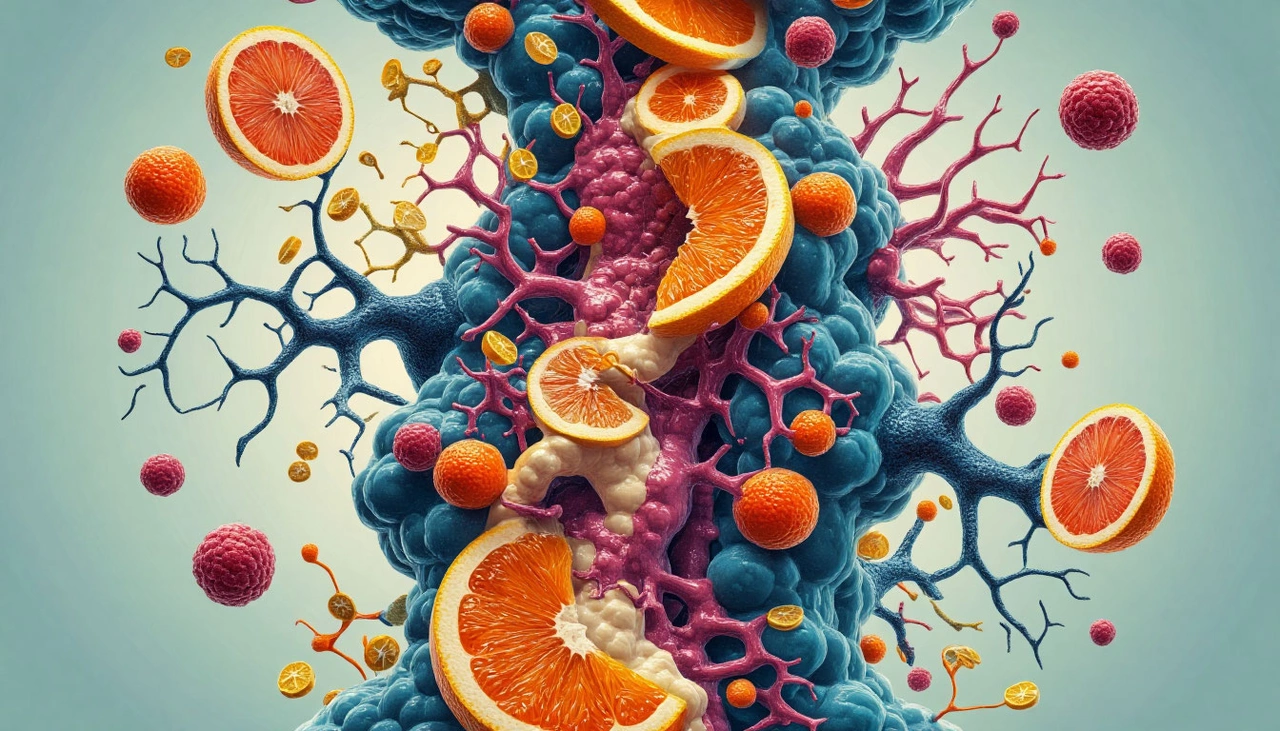
🍊 Top Food Sources of Vitamin C
While supplements are common, natural food sources remain the best way to integrate vitamin C into your diet.
Fruits high in vitamin C:
- Oranges, grapefruits, lemons, limes
- Kiwis, pineapples, strawberries, watermelon
- Acerola cherries (among the richest sources)
Vegetables high in vitamin C:
- Bell peppers (especially red), broccoli, spinach
- Kale, Brussels sprouts, sweet potatoes, tomatoes
A colorful plate usually means a nutrient-rich one — aim for variety.
💊 Supplements: Ester-C vs. Traditional Vitamin C
Walk into any pharmacy and you'll be greeted with a dizzying array of vitamin C products. So what’s the difference between traditional ascorbic acid and newer forms like Ester-C?
- Ascorbic Acid (Standard Vitamin C): The most commonly used form, but can be acidic and cause stomach discomfort for sensitive individuals.
- Ester-C: A patented, non-acidic form of vitamin C that's gentler on the stomach and includes additional metabolites that may help the body retain it longer.
People with sensitive digestion or those looking for long-lasting support often prefer Ester-C.
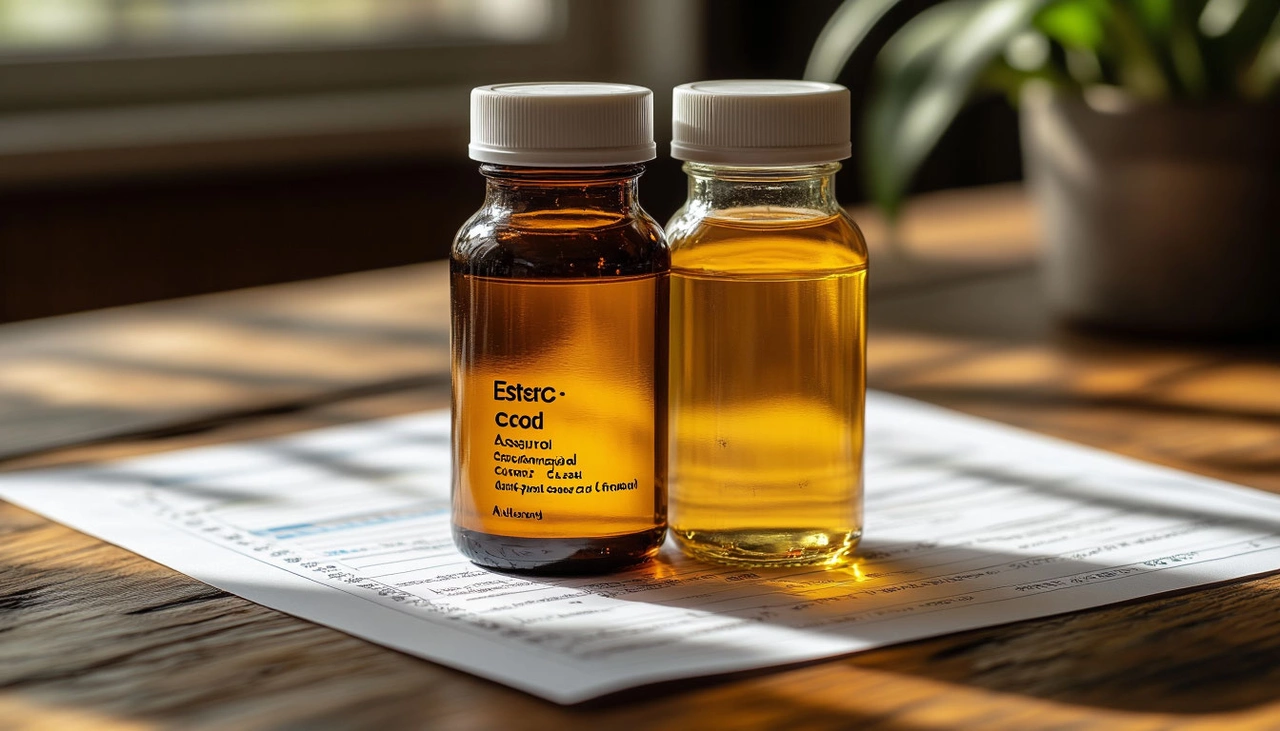
🛑 Can You Take Too Much?
Yes — while vitamin C is water-soluble and excess amounts are usually excreted in urine, very high doses (especially over 2000 mg per day) can lead to:
- Stomach cramps
- Nausea or diarrhea
- Potential kidney stones in predisposed individuals
The recommended daily intake for adults ranges from 65–90 mg, but during times of illness, higher amounts (e.g., up to 1000 mg/day) may be temporarily beneficial — always consult your doctor.

✅ Final Thoughts: Daily Vitamin C for a Healthier You
Vitamin C is more than just an immune booster — it's a vital player in your overall health. Whether you’re choosing citrus-rich meals or considering a daily supplement, keeping your vitamin C levels optimal can make a lasting impact on your body’s resilience, healing, and energy.
🔋 Energy and Endurance: More Than Just Buzzwords
Energy and stamina aren’t just vague ideas — they are the foundation of productivity, mental clarity, and emotional balance. Whether you're chasing deadlines, chasing kids, or chasing your fitness goals, your ability to stay energized makes all the difference.
When energy levels drop, even simple daily tasks feel overwhelming. Concentration fades, motivation disappears, and stress sneaks in. But when endurance is strong, your body and mind recover faster, stay sharper, and keep you going without burnout.

🚴♂️ 1. Move Your Body — Regularly and Mindfully
The quickest way to boost endurance? Consistent physical activity. It’s not about intensity — it’s about regular movement. Even moderate cardio like walking, swimming, cycling, or light jogging has profound effects on your cardiovascular system, mood, and energy regulation.
As your fitness builds, you can introduce gym workouts or fitness classes. The key is to listen to your body — exercise should uplift, not exhaust.
🥗 2. Eat Smart — Fuel for Energy, Not Just Fullness
Balanced nutrition is the engine behind sustainable energy. This means a good mix of complex carbs, healthy fats, and quality proteins, plus essential vitamins and minerals.
Make sure your diet includes:
- Fresh fruits and vegetables
- Whole grains and legumes
- Healthy fats from nuts, seeds, and plant oils
- Lean sources of protein (animal or plant-based)
Two key nutrients deserve special attention when it comes to daily vitality:
🔹 Alpha-lipoic acid — a powerful antioxidant that helps produce cellular energy, supports metabolic health, and combats fatigue. It’s one of the few nutrients that’s both water- and fat-soluble, allowing it to work deep within your cells. Though your body can produce some ALA, its levels naturally decline with age — making supplementation beneficial.
🔹 Omega-3 fatty acids — essential for brain function, heart health, joint flexibility, and overall metabolic balance. They help maintain healthy blood vessels, regulate cholesterol, and reduce inflammation — all of which contribute to your energy and endurance.
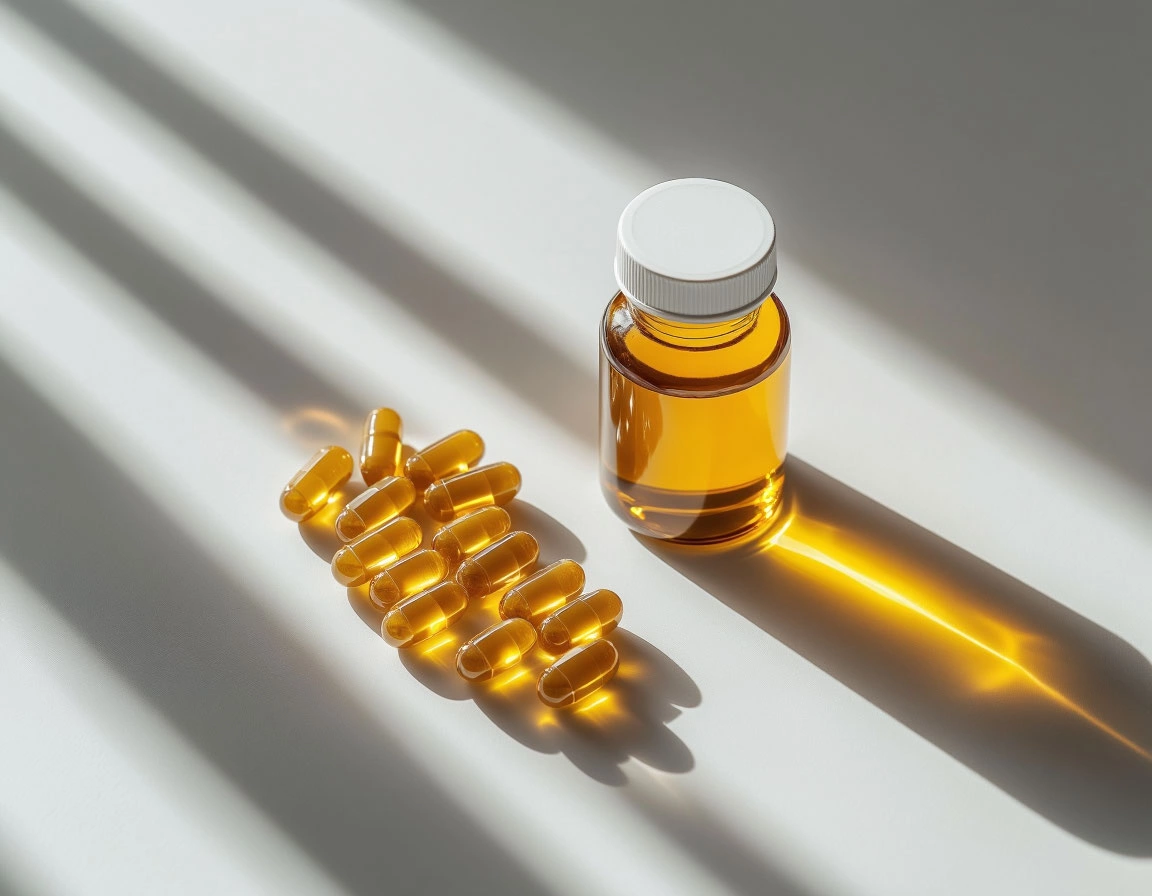
💧 3. Hydrate to Thrive
Even mild dehydration can cause tiredness, irritability, and brain fog. Keeping your body hydrated helps regulate temperature, transport nutrients, and maintain energy balance.
A general rule: aim for 1.5 to 3 liters of water daily, or approximately 30 ml per kg of body weight. Adjust based on activity level and climate.
😴 4. Rest Isn’t Lazy — It’s Fuel
Energy is a cycle — and recovery is essential. Without enough rest, even the best nutrition or workouts won’t keep you going for long. Make sleep a non-negotiable part of your wellness routine.
Good rest includes:
- 7–9 hours of quality sleep per night
- Short breaks during the day
- Time for hobbies, relaxation, and mental unwinding
Recovery also depends on adequate protein intake, which helps rebuild muscles, strengthen tissues, and support the immune system. Look for complete protein sources rich in amino acids to enhance your recovery.

🧘♀️ 5. Master Your Stress Response
Chronic stress is a major energy drain. It elevates cortisol levels, disturbs sleep, and reduces your capacity to focus or recover. Building emotional resilience is key to lasting endurance.
What helps?
- Mindful movement: yoga, tai chi, nature walks
- Breathing techniques and meditation
- Positive reinforcement: celebrating small wins
- Professional support when needed
- Adaptogenic supplements and calming nutrients
👩🔬 The Hidden Foundation of Beauty
While serums, masks, and shampoos have their place, they can only work on the surface. True, lasting beauty begins at the cellular level—with nutrients that support regeneration, hydration, collagen synthesis, and resilience. When the body lacks essential vitamins, minerals, and amino acids, the first signs often show up externally: brittle nails, dull skin, thinning hair, or breakouts.

🔍 Listen to the Clues: When Beauty Falters
If you’ve noticed more split ends, dry patches, or soft, peeling nails, it may be time to look beyond your cosmetics bag. Before blaming a new shampoo or seasonal dryness, ask:
* Have I been under prolonged stress?
* Has my diet changed recently?
* Are these changes persistent or seasonal?
Hair loss from stress, for example, can take 2–3 months to appear after the stressful event. Nail and skin changes might follow a nutrient deficiency that developed weeks prior. Recognizing these clues early can help you intervene before temporary symptoms become long-term issues.

💎 Skin’s Best Allies
Skin is your largest organ, and it’s also one of the first to show nutritional imbalances. Here are key nutrients to focus on:
* Vitamin C: Not just for immunity! It boosts collagen synthesis and protects capillaries. A deficiency can lead to fine lines, dullness, and poor healing.
* Zinc: Regulates oil production. Without enough, acne and inflammation may flare up.
* Copper: Critical for producing elastin and collagen. Low levels = sagging, dull skin.
* Vitamin E: A powerful antioxidant that guards against UV damage and dryness.
* Vitamin A: Encourages skin renewal. Lack of it results in dryness and flakiness.
💇♀️ Strong, Silky Hair Starts Within
Hair is 95% keratin, a protein that depends on sulfur and amino acids to maintain strength and shine. Here’s what your strands are starving for:
* Sulfur: A key player in keratin production. Deficiency = brittle, splitting hair.
* Amino acids like lysine, cysteine, methionine: Essential for follicle health and elasticity.
* Zinc: Again! It promotes growth and helps prevent dandruff and shedding.
* Copper: Affects melanin production—low levels can cause premature graying.
* Iron: Transports oxygen to hair roots. Inadequate iron = sluggish growth and increased fallout.
Women, especially during menstruation, should monitor iron intake carefully.

🌟 Final Thoughts
Beauty is never just skin deep. It’s a reflection of inner health, emotional balance, and nutrient sufficiency. If your skin, hair, or nails seem to be telling you something, listen closely—it could be time to nourish from within.
Instead of adding more products to your routine, try giving your body what it truly needs: the building blocks of radiance.
Getting a good night’s sleep is not just a luxury — it’s essential for your mental clarity, physical well-being, and emotional balance. While we often focus on productivity, exercise, or diet to improve health, we sometimes overlook one of the most important contributors to our overall well-being: sleep.
Sleep hygiene — a term that refers to the habits and environment that support healthy, restful sleep — plays a crucial role in helping us recharge. And if you’ve ever stared at the ceiling at 3 a.m., frustrated that you can’t fall asleep even though you're exhausted, you know how valuable good sleep really is.
Let’s explore 7 powerful tips to improve the quality of your sleep and feel more energized every day:
⏰ 1. Stick to a Consistent Sleep Schedule
Your body has an internal clock — and it loves consistency. Going to bed and waking up at the same time each day (even on weekends!) helps regulate your circadian rhythm. If you sleep in until noon on Sunday, you may find yourself lying awake Sunday night, unable to fall asleep, which can disrupt your entire week.

🌡 2. Find Your Ideal Room Temperature
Temperature can make or break your sleep quality. Experts suggest that the optimal sleeping temperature for most adults is between 15°C and 19°C (59°F to 66°F). However, older adults may prefer it slightly warmer — around 20°C to 25°C (68°F to 77°F).
Experiment by adjusting your thermostat or using layers of bedding until you find the most comfortable temperature for uninterrupted sleep.

🌘 3. Eliminate Excess Light
Light is one of the strongest signals your brain receives about whether it's time to wake up or sleep. Even small amounts of light — from street lamps, phones, or LEDs — can interfere with melatonin production and disrupt your sleep.
Use blackout curtains or a sleep mask to block out light and create a truly restful space.
🧘♀️ 4. Incorporate Gentle Evening Movement
Physical activity during the day promotes better sleep at night. However, intense workouts close to bedtime can be overstimulating. Instead, opt for gentle evening routines like yoga, stretching, or deep breathing exercises to relax your nervous system.
📵 5. Disconnect from Devices Before Bed
The blue light emitted by smartphones, tablets, and laptops suppresses melatonin, the hormone responsible for sleep. Turn off screens at least an hour before bed and replace screen time with calming activities such as reading a book or journaling.

🚫 6. Avoid Caffeine, Alcohol & Heavy Meals Before Sleep
Late-night stimulants and heavy dinners can interfere with your ability to fall and stay asleep. Instead of coffee, opt for a soothing drink like warm milk or chamomile tea. Foods rich in tryptophan — like bananas and avocados — can help increase melatonin naturally.
🥦 7. Support Your Body with Sleep-Friendly Nutrition
Even with the best intentions, our diet may lack certain key nutrients for optimal rest.
Supplementing with the right vitamins and minerals can help bridge the gap:
* B-Complex: Includes a full spectrum of B vitamins to support your nervous system, energy levels, and mood regulation.
* Magnesium Citrate: A highly absorbable form of magnesium that supports muscle relaxation and helps ease you into deeper sleep.
* Sleep & Stress Relief Formula: A blend of calming plant extracts like valerian root, passionflower, hops, L-theanine, and vitamin B6 — designed to help you unwind after a stressful day and sleep more soundly.

Maintaining healthy eating habits during a busy workday often feels like an impossible mission. With urgent deadlines, back-to-back meetings, and constant multitasking, our well-being — especially our nutrition — frequently takes a backseat.
Skipping meals, grabbing unhealthy snacks, or resorting to fast food may seem convenient, but these choices can negatively impact both our physical health and mental clarity. Over time, this pattern may lead to chronic fatigue, digestive issues, weakened immunity, and reduced concentration.
The good news? It *is* possible to strike a balance between a hectic office life and mindful nutrition. Here are six realistic and effective tips to help you stay on track. 💪
🍳 1. Never Skip Breakfast
Breakfast sets the tone for your metabolism and mood for the rest of the day. Skipping it may lead to low energy levels and poor concentration — not ideal for a demanding work schedule.
💡 Tips to simplify breakfast:
* Prepare it the night before: overnight oats, egg muffins, or a breakfast burrito are great options.
* Set the scene: place ingredients, utensils, and containers on the counter before bed.
* Take it with you: pre-cut fruit, yogurt, or a whole grain sandwich can easily be packed and eaten at your desk if necessary.
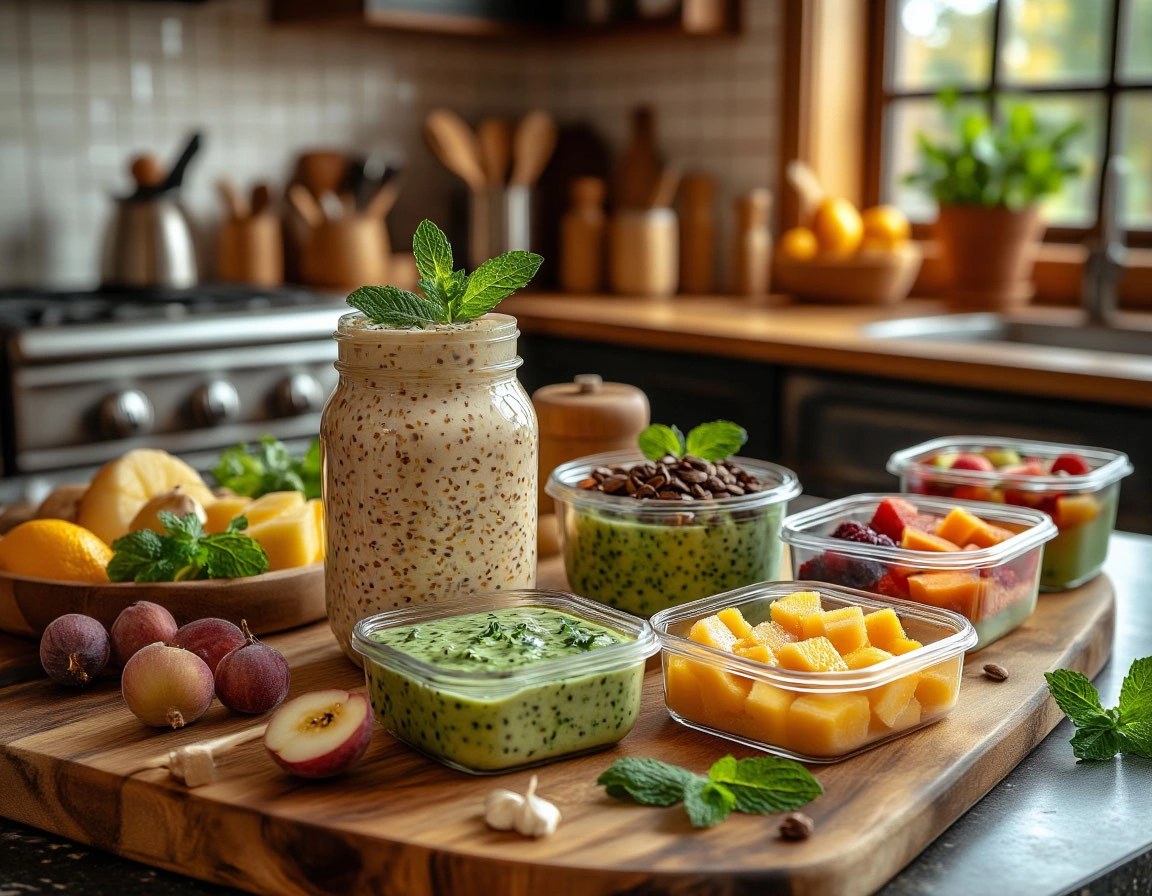
🥗 2. Plan Your Lunch Ahead
Preparing lunch at home not only saves money but also ensures you’re getting the nutrients your body needs. A meal rich in fiber, protein, and healthy fats helps maintain energy and keeps cravings at bay.
💡 Time-saving strategies:
* Meal prep on Sundays or weekday evenings.
* Cook double portions for dinner and use leftovers for lunch.
* Make a weekly menu with quick recipes like stir-fry, grain bowls, or veggie wraps.
Don't forget healthy snacks like:
* Raw vegetables (carrots, cucumbers, bell peppers)
* Mixed unsalted nuts
* Dried fruits or whole grain crackers
* Yogurt or cottage cheese
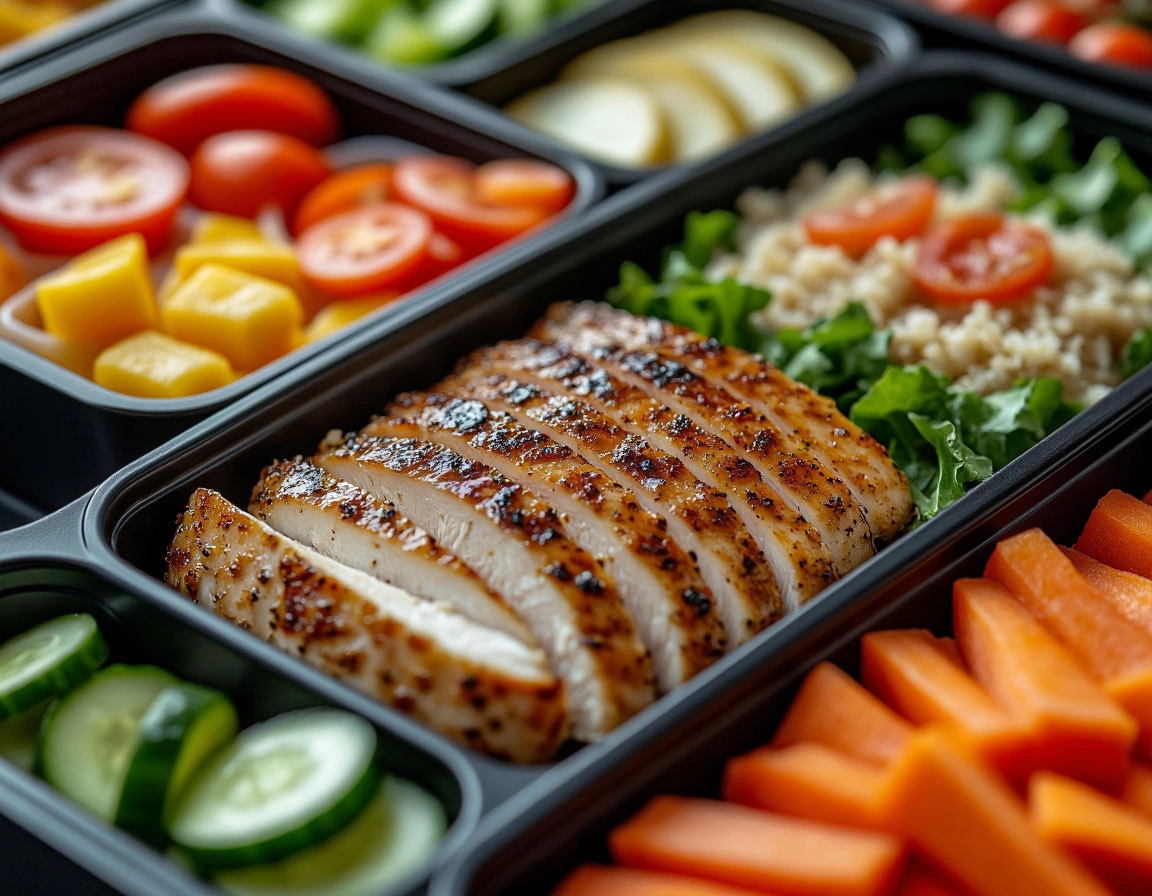
💧 3. Hydration is Key
Even mild dehydration can lead to headaches, fatigue, and poor cognitive performance. Make a habit of sipping water throughout the day.
💡 How to drink more water at work:
* Keep a reusable water bottle on your desk.
* Set reminders on your phone or use a hydration app.
* Add natural flavor with lemon, mint, or cucumber.
🌿 Gentle Care for Your Skin
Forget about long, scalding hot showers! While it’s tempting to warm up under hot water during chilly days, this habit can seriously damage your skin. Prolonged exposure to hot water strips away natural oils, leading to dryness and irritation. Aim for warm showers lasting no more than 10 minutes to maintain your skin’s moisture balance. Use gentle cleansers—avoid harsh soaps with strong fragrances as they can exacerbate dryness. Instead, choose mild, hydrating products that soothe your skin while cleansing.
And here’s a golden rule: moisturize immediately after showering. Applying a rich cream or lotion on damp skin locks in hydration, helping your skin stay soft and supple even in cold weather.

💧 Hydration is Your Beauty Secret
Water is essential not only for your internal health but also for maintaining the hydration of your skin, hair, and nails. Dehydration can cause your skin to become flaky, hair brittle, and nails weak.
Make it a habit to drink plenty of water throughout the day. Staying well-hydrated supports the elasticity of your skin, promotes healthy hair growth, and prevents nail breakage. Remember: glowing beauty starts with hydration from the inside out.
💇♀️ Hair Care: Less is More
When it comes to washing your hair, skip the daily shampooing. Washing only when necessary helps preserve natural oils that keep your scalp and strands healthy.
Choose hair care products designed for your specific hair type to maintain moisture and strength. Over-washing can lead to dryness, so listen to your hair’s needs rather than following strict schedules.
Limit heat styling and chemical treatments like blow-drying, straightening, and coloring as much as possible. These practices weaken hair structure, causing split ends and dullness. If styling daily is unavoidable, protect your hair with heat-protectant sprays, nourishing oils, or serums to minimize damage.

🥗 Nutrition for Radiant Skin, Hair & Nails
Your diet plays a vital role in your natural beauty. Vitamins and minerals such as A, C, E, zinc, copper, and amino acids are key players in keeping your skin glowing, hair shiny, and nails strong.
Incorporate these nutrient-rich foods into your meals:
- Vitamin C: Oranges, tomatoes, broccoli — helps collagen production and protects against oxidative stress.
- Vitamin A: Sweet potatoes, liver, leafy greens — supports skin repair and cell turnover.
- Vitamin E: Nuts, seeds, salmon — fights free radicals and nourishes skin and hair.
- Copper: Liver, spinach, nuts — important for collagen formation and pigmentation.
- Zinc: Chickpeas, beef, oysters — promotes cell regeneration and immune support.
- Amino Acids: Eggs, red meat, chicken, seafood — essential building blocks for keratin, collagen, and overall tissue health.
The Role of Supplements
While a balanced diet is the foundation of beauty, sometimes our bodies need a little extra help. Vitamin supplements can fill nutritional gaps and boost your skin, hair, and nail health from within.
Consider adding targeted supplements containing collagen, biotin, vitamins A, C, E, and minerals like zinc and copper. These can enhance your natural glow, improve hair strength, and help nails resist breaking.
Remember, supplements work best alongside a nutritious diet and healthy lifestyle—not as a substitute.
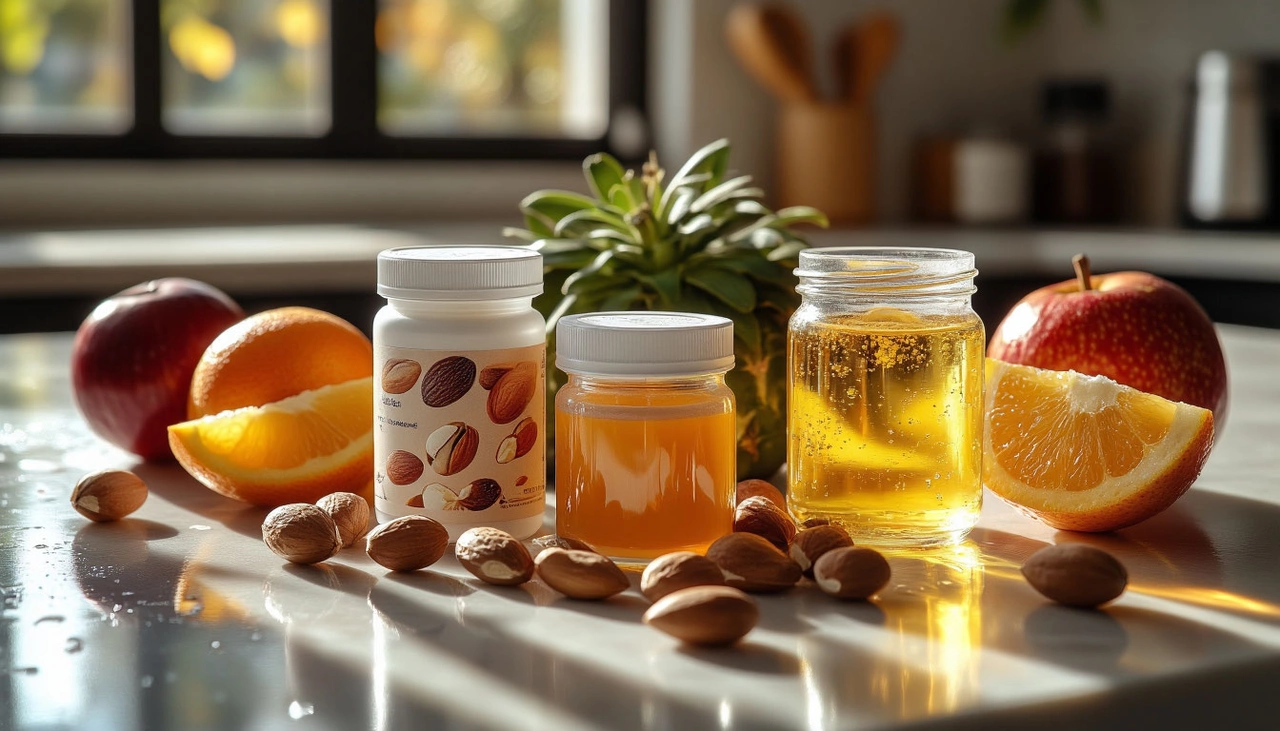
🌟 Final Words
Caring for your skin, nails, and hair requires a holistic approach: gentle cleansing, consistent hydration, mindful styling, balanced nutrition, and, when needed, quality supplements. With these simple steps, you can enjoy radiant beauty that lasts through every season.
🦴 Calcium: The Foundation of Strong Bones and Joints
[Image prompt: a woman in her 40s jogging in the park with strong posture and clear joints highlighted]
Calcium is one of the most vital minerals for the human body—especially for women. It plays a central role in maintaining bone density and supporting joint function. Women are particularly vulnerable to bone loss due to hormonal fluctuations, especially during and after menopause. This is because estrogen, a hormone that supports bone strength, drops sharply during this stage of life, increasing the risk of osteoporosis.
The recommended daily intake of calcium for women is approximately 800 mg. However, for women over 50 or postmenopausal, this requirement may increase up to 1200 mg per day.²
To protect your bones:
- Include calcium-rich foods such as dairy products, tofu, sardines, and calcium-fortified plant-based milk like soy or oat.
- Engage in weight-bearing exercises, such as brisk walking, dancing, or strength training.
- Consider calcium supplements if your dietary intake is insufficient.
🩸 Iron: Vital Support During Menstruation

Menstruation leads to a natural but significant loss of iron, especially for women who experience heavy periods. Iron is essential for the production of hemoglobin, the protein in red blood cells that carries oxygen throughout the body. Without enough iron, the body can become fatigued, foggy, or weak—common signs of iron-deficiency anemia.
Key dietary sources of iron include:
- Red meat, chicken, and organ meats (rich in heme iron, which is easily absorbed)
- Lentils, beans, and dark leafy greens (non-heme iron, which is less efficiently absorbed)
Tip: Pair plant-based iron with vitamin C-rich foods like oranges or bell peppers to improve absorption. Women following vegetarian or vegan diets should be especially mindful of their iron intake.
🧠 B Vitamins: Energy, Fertility & Beyond
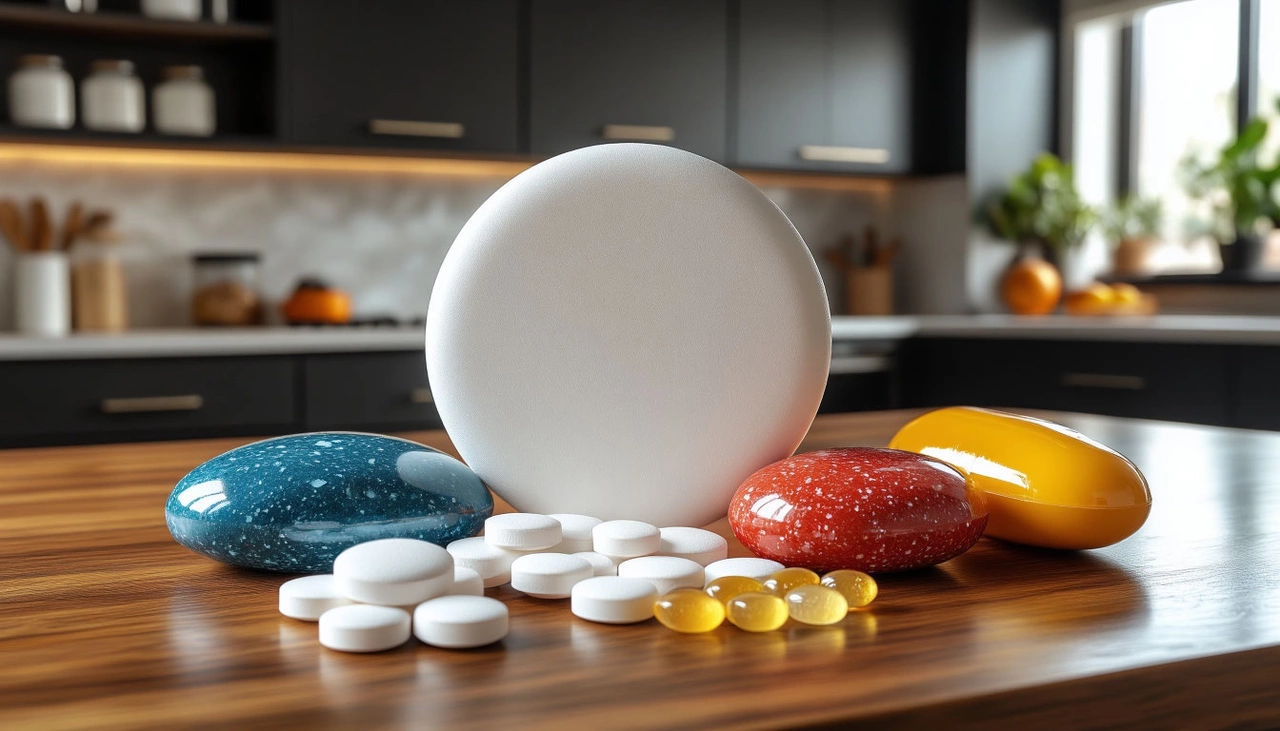
The B-vitamin family includes a variety of essential nutrients, each playing a unique role in your metabolism, brain function, red blood cell formation, and hormonal balance. For women, a few stand out:
- Vitamin B12: Crucial for nervous system health and energy. Found only in animal-derived products, so vegans and vegetarians often require supplements. Deficiency can cause fatigue and anemia.
- Folate (Vitamin B9): Especially important for pregnant women and those planning to conceive. Folate supports healthy fetal development, including the formation of the neural tube, which becomes the baby’s brain and spinal cord.
Folate is the bioavailable form found naturally in foods like leafy greens, citrus, and beans.
Folic acid is the synthetic form used in supplements and fortified foods. - Folate is the bioavailable form found naturally in foods like leafy greens, citrus, and beans.
- Folic acid is the synthetic form used in supplements and fortified foods.
Beyond pregnancy, B-vitamins like biotin and niacin help maintain healthy hair, skin, and hormonal regulation—an added bonus for women throughout life.
⚖️ Changing Nutritional Needs Throughout a Woman’s Life

A woman’s nutritional needs are dynamic. Hormonal fluctuations—whether due to menstruation, pregnancy, breastfeeding, or menopause—require tailored support at each stage:
- Adolescence: The foundation-building stage. Iron and calcium are key during rapid growth and the start of menstruation.
- Reproductive years: Folate, iron, and B12 become more important to support fertility and monthly blood loss.
- Pregnancy & postpartum: Increased needs for folate, iron, B12, and omega-3 fatty acids to support fetal and maternal health.
- Menopause and beyond: Focus shifts to calcium, vitamin D, and magnesium to preserve bone mass and manage hormonal shifts.
Regardless of age, women benefit from a balanced diet, regular physical activity, and mindful supplementation when needed.
🌿 In Summary
To maintain optimal health, women need more than just calories—they need targeted nutrients to support their body’s evolving demands. Calcium, iron, and B vitamins are among the most important to protect bone density, support energy levels, balance hormones, and ensure healthy aging.
Investing in your wellness through nutrition today means a healthier, stronger tomorrow. 💪💕